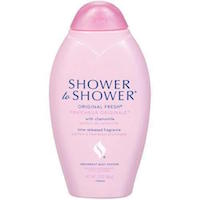
Superior Court Judge Nelson Johnson initially threw out the cases of Diana Balderrama and Brandi Carl because he rejected the expert testimony presented on their behalf. In their appeal, the plaintiffs assert Judge Johnson “misapplied the law” while superseding the role of a jury and “based his ruling on personal opinions about experts’ conclusions,” according to the New Jersey Law Journal.
The experts whose testimonies were rejected by Judge Nelson are Dr. David Cramer, head of the Obstetrics and Gynecology Epidemiology Center at Brigham and Women’s Hospital in Boston; and Dr. Graham Colditz, the Associate Director for Prevention and Control at the Alvin J. Siteman Cancer Center in St. Louis. Their expert testimony has been successfully used in two other trials in different states. That testimony contributed to plaintiffs being awarded $72 million in one case and $55 million in another. Johnson & Johnson sought to have their testimony excluded in those cases as well, but were unsuccessful.
The vast majority of the awards in those cases were given in punitive damages issued against Johnson & Johnson. While $15 million was granted to plaintiffs for personal loss or illness, the remaining $117 million was levied as punishment on the corporation for their alleged cover-up and inaction. Krista Smith, the jury foreman in a Missouri case, stated “it was really clear they [Johnson & Johnson] were hiding something” when espousing the safety of their talc products.
Numerous studies have been conducted that appear to show a link between repeated, long-term use of talc and ovarian cancer. One study conducted in 2016 found that a woman could be up to 33% more likely to develop ovarian cancer after long-term application of talc powder to her genitals. That study was led by Dr. Cramer, who has repeatedly called for talc products to require warning labels, but has been unsuccessful. He has said that repeated use of the powder can allow it to make its way into women’s upper genital tracts and that if they were aware of its dangers, fewer would use it.
In 1997, an external medical consultant to Johnson & Johnson told the corporation that denying the link between talc and ovarian cancer would be “denying the obvious in the face of all evidence to the contrary.” Multiple trials claiming the connection have cited internal documents from Johnson & Johnson that purportedly show the company has had concerns over their talc products since the 70s. Currently, thousands of cases await trial in state and federal courts.
Nine cases have been centralized in New Jersey Federal Court by the Judicial Panel on Multidistrict Litigation because of “common factual issues [which] are sufficiently complex.” Johnson & Johnson maintains their talc products are safe despite multiple, research-backed authorities saying otherwise. The consolidation of New Jersey trials could be the first step to streamline proceedings that will hopefully respond in a more efficient manner to the needs of thousands of suffering plaintiffs.
